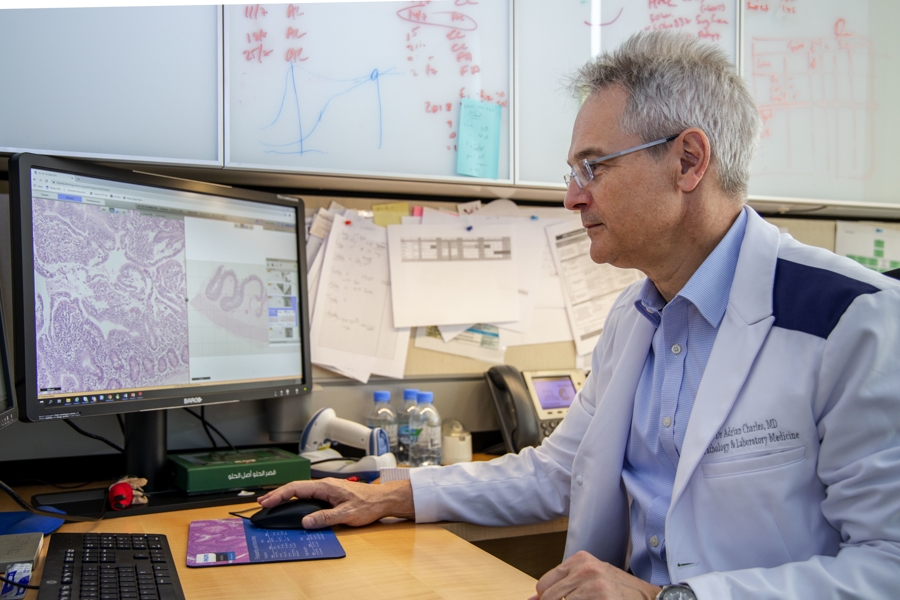QF Entity marks first digital pediatric pathology labs in the Middle East
04 March 2020, Doha, Qatar- Sidra Medicine, a member of Qatar Foundation, has adopted a digital platform for its anatomical pathology laboratory. The implementation marks it as the first digital anatomical pathology laboratory in the Middle East; designed to improve pathology and clinical workflows that will lead to better patient care outcomes.
Sidra Medicine’s Pathology department, which was accredited by the Accreditation Committee of the College of American Pathologists (CAP) in 2019, serves patients by providing state-of-the-art diagnostic services dedicated to improving the diagnosis, treatment, management, and prevention of childhood and maternal diseases. It also plays a fundamental role in precision diagnostics for its young patients suffering from diseases like cancer.
Dr. Adrian Charles, Division Chief of Anatomical Pathology, Sidra Medicine said: “We are witnessing a greater reliability on the practice of pathology due to a global rise in diagnostic related diseases such as cancer and an increasing demand to identify the exact sub-types cancer. Pathology also helps provide prognostic information related to the efficacy of a drug. There is also the added requirement for faster, efficient, uniform and error-free diagnoses. A digital pathology lab at Sidra Medicine is the way forward that will lead to better patient care outcomes and support the organization’s translational research efforts.”
The digital implementation, which took 18 months, involved close collaboration with the hospital’s IT and imaging support services and was built using Royal Phillips digital and computational technology.
The digital lab has already enabled several efficiencies for pathologists and clinicians alike. The tele-pathology feature has helped clinicians to quickly get access to current clinical information; enabling them to respond, diagnose and treat their patients in a more efficient manner. The lab has also digitized its slides by scanning them into high-resolution digital images which when magnified are comparable to a microscope.
Dr. Fouad Alchami, Attending Physician from the Anatomical Pathology Unit at Sidra Medicine, who oversaw the implementation said: “By digitizing the specimen slides, sharing them has become faster and significantly reduced scenarios of loss or contamination of the specimen. The digital workflow will help eliminate issues with handling materials and detect abnormalities as they occur. Copies of the virtual slides are also available for researchers incorporating tumour appearances while investigating the genetic causes of diseases. Digitization will also improve analysis over microscopy, provide quicker access to prior cases, link to the patient’s electronic medical records and generate better predictive analysis over a period of time.”
“Our pathologists can evaluate and collaborate with requests received remotely with increased efficiency, accuracy and speed. In addition, thanks to the portability of scanned specimens and a collaborative consultation application, multiple pathologists can discuss a single case and offer opinions while navigating the same slide of tissue on different screens and in different locations,” continued Dr. Alchami.
Sidra Medicine’s anatomical pathology lab becoming 100 per cent digital puts the hospital at the forefront of implementing cutting-edge medical technology. The digital lab will also help future proof the pathology department for embedding machine learning and artificial intelligence into the diagnostic process.
The pathology laboratory at Sidra Medicine is one of the few in the Middle East with a pediatric focused team of doctors and technologists, who have unique training and experience in specialized fields within pediatric pathology. For more details, please visit the Pathology Department services section on sidra.org.
- انتهى -


